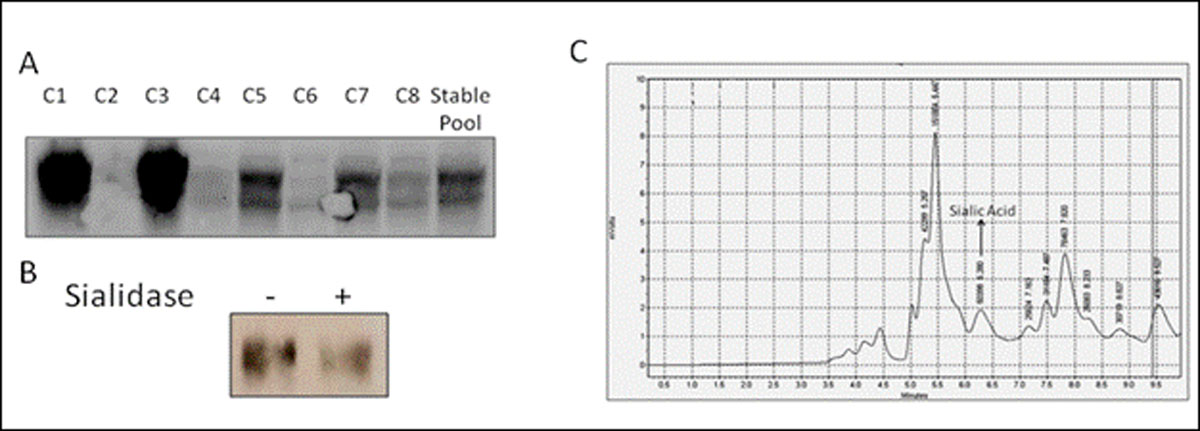Membrane Proteins

Membrane proteins such as cell adhesion molecules, receptors, transporters and ion channel proteins all have essential roles in cell-growth, migration, and flow of information, cell-cell and cell-protein communication. Membrane proteins are targets of biopharmaceutical companies because they have diverse effects on the progression of many diseases. Ion channels are membrane proteins that play critical roles in a number of cell functions including communication and neuromuscular activity. Treatment of channelopathy diseases such as cancer, cardiac arrhythmia, ataxia, paralysis, epilepsy, memory and learning loss, requires a broad understanding of ion channel function.
Sialic acid is a critical charged glycan that affects the action potential of potassium channels which leads to changes in the neuronal system of organisms. In order to understand the effect of the sialylation on channel function, the presence of the sialic acid on the protein of interest should be studied. In this study, a novel method for the quantification of sialic acid is described for a potassium channel membrane protein.
References
Hizal, Deniz B., Erika Ohsfeldt, Sunny Mai, and Michael J. Betenbaugh. "Membrane Protein Expression in Mammalian Cells." In Production of Membrane Proteins, 139-165: Wiley-VCH Verlag GmbH & Co. KGaA, 2011.